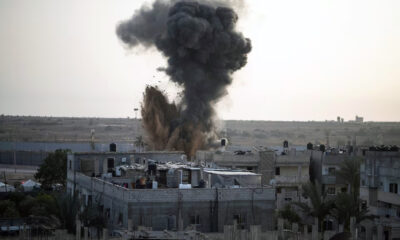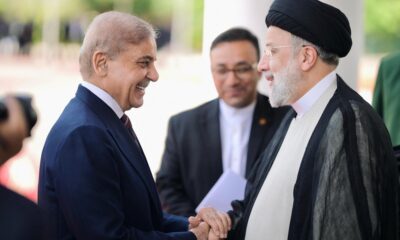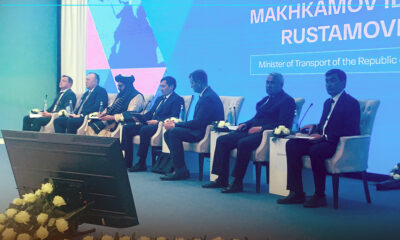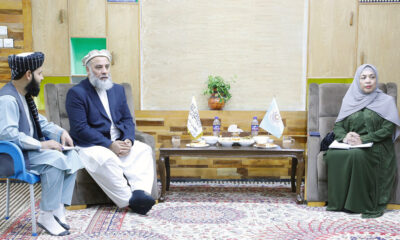Latest News
UN calls for quality education for Afghan boys and girls
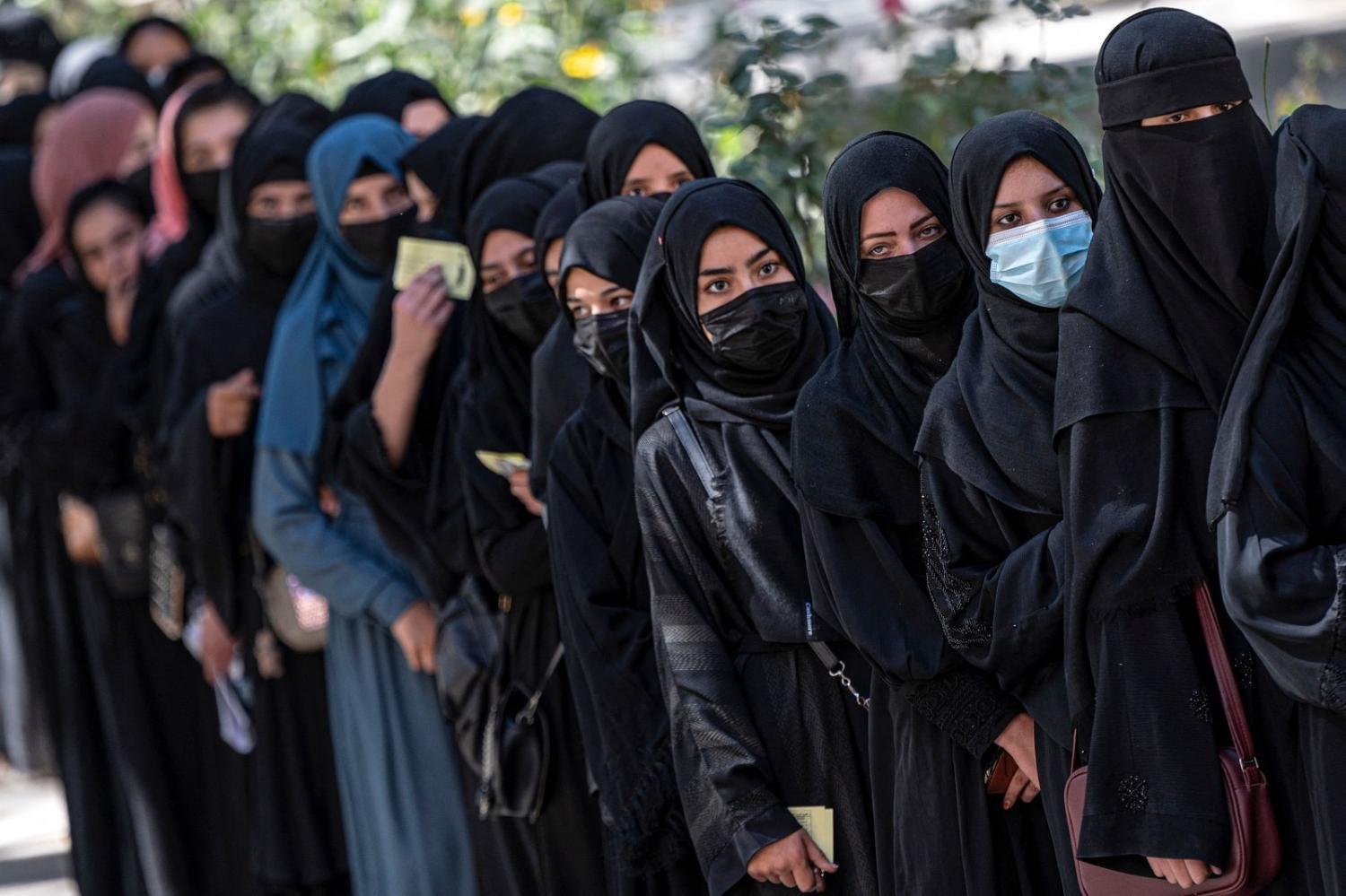
Richard Bennett, the UN’s Special Rapporteur on the situation of human rights in Afghanistan, and other United Nations experts, said the Islamic Emirate of Afghanistan (IEA) has no “justification to deny the right to education, on any grounds, including religion or tradition” to girls in the country.
In a statement issued on Monday, the UN said that schools should “be reopening to girls across Afghanistan” when the new school year starts on Wednesday.
“Instead, it appears that for the second successive school year teenage girls will be banned from resuming their studies – making Afghanistan the only country in the world that forbids girls and young women from attending secondary school and places of higher education.”
According to the statement, being a state party to United Nations human rights treaties, “Afghanistan is obliged to respect, protect and fulfil the right to education without discrimination on the basis of gender or any other ground, irrespective of the authority in power.”
The UN noted that the IEA denied women and girls their right to education during their initial rule in the country between 1996 and 2001 and after seizing power for a second time in 2021, teenage girls were again denied their right to education.
“Both times, the ban on girls’ education was introduced as a temporary measure. However, during the first period the ban was not lifted and unless the Taliban fulfills its promises to reopen secondary schools and universities immediately, it must be concluded that they have no intention of doing so,” read the statement.
They also said that “even if the ban is reversed, we are concerned about the quality of education that will be provided for girls as well as boys. Disturbing reports from boys’ secondary schools highlight the replacement of qualified professional teachers with religious teachers, with significant changes in school curricula, and a limited provision of school subjects.”
They called for the IEA to immediately reopen all secondary schools and places of higher education to girls and young women.
Latest News
Mullah Baradar discusses creation of railway with Kazakh deputy PM

Mullah Abdul Ghani Baradar, deputy prime minister for economic affairs has met with Erik Zhumangarin, the Deputy Prime Minister of Kazakhstan, and discussed the establishment of a railway network from Kazakhstan to Pakistan through Turkmenistan and Afghanistan, the deputy PM’s office said in a statement.
During the meeting, Baradar emphasized the need to sign agreements to solve the banking problems of traders from both countries, the creation of Afghan-Kazakh joint companies, and the facilitation of visas for Afghan traders.
According to the statement, the Deputy Prime Minister of Kazakhstan said that the Kazakh government intends to establish a joint chamber of industry and commerce and a joint trade and labor group between the two countries, and is ready to cooperate with Afghanistan in the sectors of e-governance, industry, higher education, education, health, and banking.
Latest News
Iran, Pakistan leaders raise concerns over ‘terrorist groups’ in Afghanistan

Following a two-day official visit to Pakistan, Iranian President Ebrahim Raisi and Pakistan’s Prime Minister Shehbaz Sharif issued a joint statement emphasizing the need to further expand commercial and economic cooperation and transform the common border of the two countries from a “border of peace” to “border of prosperity”.
The two leaders also strongly condemned aggressions and crimes of Israel in Gaza, and demanded an immediate and unconditional ceasefire, as well as unimpeded humanitarian access to the besieged people of Gaza.
Numerous other issues were also discussed but on the topic of Afghanistan, they jointly declared their commitment to the development of Afghanistan as a peaceful, united, independent country free from the threats of terrorism and drug trafficking.
According to the statement the two countries pointed out that the existence of terrorist organizations in Afghanistan is a serious threat to the security of the region and the world.
The two sides stressed their desire to strengthen cooperation in the field of fighting terrorism and ensuring security and creating a united front against terrorism.
They also discussed the importance of coordinating regional and international efforts to ensure security and stability in the region.
“While respecting the sovereignty and territorial integrity of Afghanistan, the two sides recognized that increasing participation of all strata of Afghans in basic decision-making will lead to the strengthening of peace and stability in this country,” the statement read.
Latest News
Over 1,000 Afghan refugees forced out of Pakistan in one day

The Ministry of Refugees and Repatriations (MoRR) says over 1,000 Afghan migrants were forcibly returned from Pakistan on Tuesday through Spin Boldak border crossing in Kandahar province, the ministry said in a statement.
The ministry stated that based on information provided by the Spin Boldak Kandahar border command, these returnees comprised 191 families, totalling 998 people.
In addition, three migrants released from Pakistani prisons were also returned, according to the statement.
The statement added that after registering the returnees, the refugees were referred to the offices of the International Organization for Migration (IOM), the World Food Program (WFP) and the United Nations High Commissioner for Refugees (UNHCR).
Each family received 10,000 afghanis – paid to them by the Islamic Emirate.
In another statement, the ministry said that 2,783 migrants living in Iran voluntarily and forcibly returned to the country during this week.
-

 Sport5 days ago
Sport5 days agoAfghanistan Champions League kicks off with grand opening ceremony
-

 Latest News4 days ago
Latest News4 days agoPakistan’s frontiers minister stresses ‘dignified’ return of Afghan refugees
-

 Business5 days ago
Business5 days agoAfghanistan’s economic prospects are bleak: World Bank
-

 Latest News5 days ago
Latest News5 days agoMore than 800 Afghan refugees deported from Pakistan in two days
-

 Regional3 days ago
Regional3 days agoIranian president lands in Pakistan for three-day visit to mend ties
-

 Climate Change4 days ago
Climate Change4 days agoMassive river flooding expected in China, threatening millions
-

 Latest News4 days ago
Latest News4 days agoChinese keen to invest in Panjshir-Kabul water conduit project
-
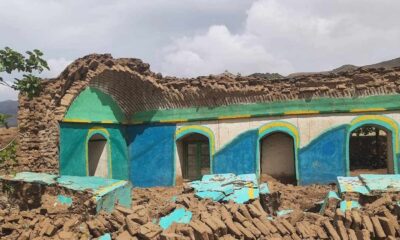
 Latest News5 days ago
Latest News5 days agoRoof collapse kills two in Helmand


